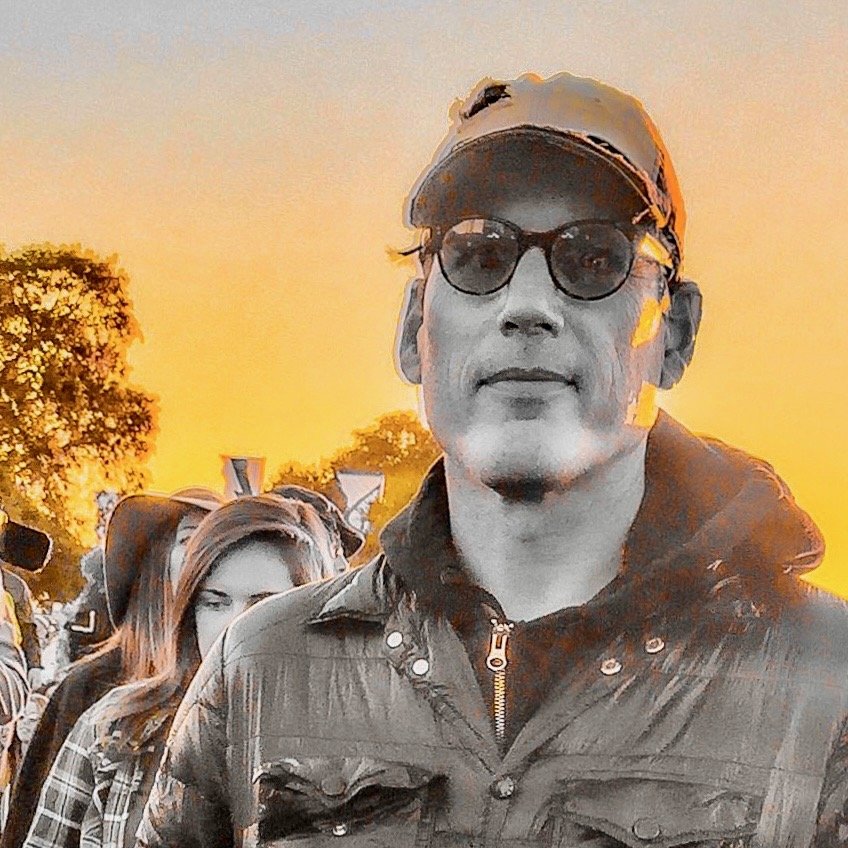Voodoo: Ask Neil

Neil Young's live today on Twitter, and reviews of new albums from him and Gary Clark Jr.
[Updated] Neil Young will headline the opening night of The Voodoo Experience Friday night, but he'll talk to you today at 2 p.m. Central on Twitter. All day Wednesday, Young will answer questions from fans addressed to @neilyoung with the hashtag #askneil. Young's new album, Psychedelic Pill, is due out on Tuesday after Voodoo, but starting today, listeners can stream it at NeilYoung.com. Here's a review.
Neil Young and Crazy Horse
Psychedelic Pill
(Warner Brothers)
Psychedelic Pill is Neil Young and Crazy Horse's second album of the year, following Americana, an album of folk songs given Crazy Horse's proto-sludge treatment. Psychedelic Pill offers more of everything - more length, more heaviness, more openness, and much more guitar. Three songs clock in at more than 16 minutes, and the lead track, "Drifting Back," stretches out to 27 minutes. None of them feel baggy, though. "Drifting Back" takes its time but it doesn't wander. There and throughout the album, Young is in a reflective mood, and that shapes the songs' lyrical and instrumental passages.
Last month, he published his ruminations, Waging Heavy Peace, and the album is an extension of it - a collection of reminiscences, reflections and obsessions that are so transparent that they almost seem random without that context in mind. "Drifting Back" devotes a verse to a thought - often but not solely based on how technology has debased the modern world - followed by meditative, vaguely elegiac solos. It never catches fire, but it's not supposed to. Instead, it warmly remembers fires. The verses are introduced by, "Hey now now, hey now now," giving them an offhanded feel that continues in the solos, while evoking "Hey Hey My My," another contemplation of Young's aging place in the world.
"Walk Like a Giant" deals with a similar theme as he's aware of his changing place in the culture, and at some level he'd like his old place back. It's not surprising that it leads to his most intense solo, particularly as the song ends in detuned, decaying noise.
It's not surprising that he mentions anger and "his inner rage" a number of times in the album, and that undercurrent gives the album a buzz that Americana lacks. It's not the whole of the album though. "Born in Ontario" is a country rock tune that broadly celebrates his upbringing (Crazy Horse doesn't overthink a musical problem and Young similarly simplifies lyrically when with them), and the title track is a pounder about a girl who's a trip - not quite "Cinnamon Girl" in its poetry, but it's a straightforward lust song for the girl who'll blow your mind.
The emotional heart of the album is "Ramada Inn," a tender song about a couple growing old together. Musically, it brings "Powderfinger" to mind with its melancholy notes; here they play against the phrase, "She loves him so." Together, they construct the picture of a long, complex relationship that has never been easy, and the mature love that has developed as a result. It's easy to hear it as a comment on his relationship with his wife, but it doesn't have to be, and its touching under any circumstances. More than anythng else on Psychedelic Pill, it's the reason Young needed to record with Crazy Horse again - a song that would be diminished if performed with any other configuration.
Gary Clark Jr.
Blak & Blu
(Warner Brothers)
Has anyone else hit for the New Orleans festival cycle? Play Jazz Fest, Essence and Voodoo in the same year? Maybe Kermit Ruffins, maybe Irvin Mayfield, but I can't think of a national figure to play all of them until Austin blues guitarist Gary Clark Jr. did so this year (playing Voodoo Friday at 5:45 p.m.). Clark, like Trombone Shorty, is someone fans of roots music hope will fly the flag for traditional values in the mainstream, and they share a common touchstone - Lenny Kravitz. Clark doesn't draw direct lineage, but Blak & Blu has a Kravitz-like breadth as it touches on R&B and soul as much as the blues that have been Clark's early calling card. Perhaps that's because of the influence Kravitz has on African-American musicians looking at a rock-with-roots future, or maybe he's the model record companies use because there are so few African Americans who've had that kind of crossover success. Probably a little of both, but as a result, Blak & Blu doesn't have the fingerprints you might expect.
His signature has been his guitar playing, which has caused the hyperbolic to compare him to Hendrix. The "Voodoo Chile"-like "Numb" aside, that equation does Clark a disservice because he's not as sonically adventurous, but he does have a distinctive sense of melody, rhythm, and solo construction. He may be the guitar hero for ADD times as he gets to the point and ramps up the excitement in the first notes of each solo. But for every "Bright Lights" and "When My Train Pulls In," there's an R&B workout, a slow-ish jam, or a radio-friendly pop tune ("The Life"). Fortunately, each is impeccable. The attention paid to his guitar has overshadowed what an effective singer he is, giving his songs an everyman scale. His blues aren't mythic, his heartache isn't epic and his good times aren't over the top. Because of that, Blak & Blu is a very approachable introduction to Clark, even if I'm not positive based on the album who he is or who he will be.
Related Voodoo Stories:
Metallica to Voodoo: The Inside Story
Say Anything's Past is Present
Updated October 24, 10:53 a.m.
The time of Young's participation was added to the post.






